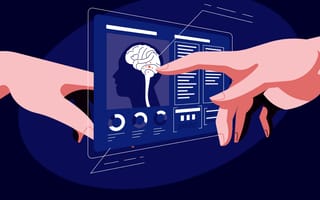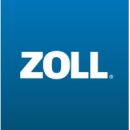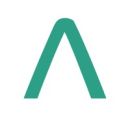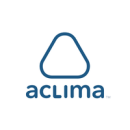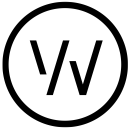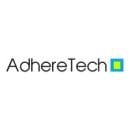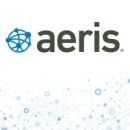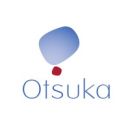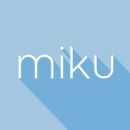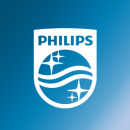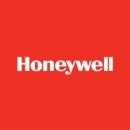Healthcare, typically quick to adopt new technology, continues to innovate using the vast universe known as the Internet of Things.
IoT technology can help connect patients to doctors through remote monitoring and virtual visits, optimize the pharmaceutical manufacturing process and allow healthcare providers to quickly and efficiently access patient data. IoT’s ability to streamline healthcare as well as medication refills and manufacturing can lead to reduced costs. And the potential for the internet of things in healthcare is reflected by the market — the market for IoT medical devices is expected to reach $94.2 billion by 2026, according to Markets and Markets research.
IoT in Healthcare
The internet of things in healthcare can take many forms — medical devices, public health services, smart sleep technology, medication refills and remote monitoring. Here are some of the companies changing the way IoT is used in healthcare technology.
IoT Medical Devices
Location: Chelmsford, Massachusetts
ZOLL offers a variety of devices and wearables to assist patients with their health needs on the go. The company’s cardiac monitor continuously tracks patient heart rhythms and records clinical arrhythmias. The device helps patients stay connected to their doctors by automatically sending alerts of a cardiac event to their healthcare provider.
Location: Cambridge, Massachusetts
Elemental Machines is a cloud-based software and hardware platform that aids laboratory operations for R&D, clinical, quality control and diagnostic labs. The software, formally known as the LabOps Intelligence Platform, highlights data insights including temperature, humidity and equipment data. The company also allows software and hardware integrations for more data extraction.
Location: Mountain View, California
AliveCor makes devices for heart monitoring. The company’s KardiaMobile program features an EKG card that can fit inside a wallet. The FDA-cleared device stores patient data and provides a summary report that patients can send to their doctors. The personal EKG device detects six of the most common types of arrhythmias in patients.
IoT in Public Health
Location: San Francisco, California
In partnership with Google, the Environmental Defense Fund and University of Texas at Austin researchers, Aclima employs its Mobile Sensing Platform to understand “how cities live and breathe” by measuring air quality. Factors that affect urban air quality include transportation and energy uses as well as weather. Having accurate quality data can help the healthcare industry detect and prevent diseases, as air pollution is one of the biggest factors in increased cardiovascular and respiratory diseases.
Location: Los Angeles, California
Nexleaf’s technologies aim to improve health conditions in less developed countries by improving conditions for vaccines and cooking. Its ColdTrace system offers wireless remote temperature monitoring for vaccine refrigerators in rural clinics and health facilities so public health workers can more safely administer disease and life-saving injections. A sensor probe is placed inside a refrigeration unit that uploads data on current temperature and grid power to text updates to monitoring personnel. Similarly, the company describes its StoveTrace technology as “a cloud-based remote monitoring system for improved cookstoves in rural households” that provides access to real-time use measurements and monetarily rewards users cooking on safer appliances that emit less carbon dioxide and don’t rely on wood fuel.
Location: New York, New York
Pfizer has embraced IoT in many ways, from its partnership with IBM to aid in immuno-oncology research as well as its implementation of digital IoT technology to aid in the production and distribution of COVID-19 vaccines. Pfizer used cold chain capabilities like IoT sensors to track and monitor shipments of COVID-19 vaccines and ensure safe temperatures.
Location: Springfield, Massachusetts
Barcode and label systems specialist SystemOne transmits medical diagnostic data in real time to physicians and other healthcare workers. Focusing on the world’s technology deserts, the company aims to connect patients to healthcare providers to more effectively manage public health situations, including infectious diseases. SystemOne has provided more than 10 million TB, Ebola, HIV and other diagnostic results for patients around the world.
IoT for Smart Sleep
Location: Boston, Massachusetts
WHOOP makes wearable devices that connect to a mobile app so people can access insights about their health and fitness. The devices feature a screen-free design and capture biometric data while they’re worn on a user’s wrist throughout the day, including while a person is asleep. WHOOP’s capabilities extend to tracking sleep stages, recommending an optimal bedtime based on recent sleep patterns and offering insights about respiratory rate and other metrics related to sleep quality.
Location: New York, New York
Eight pairs a comfortable mattress with a sleep and environment-sensing app that analyzes the data it collects and then sends that data to your smartphone so you can determine your ideal sleep temperature. The app can also integrate with smart lights and door locks. The company also offers mattress covers that can transform a regular mattress into one compatible with the app which can measure heart rate, HRV and respiratory rate.
Location: Los Angeles, California
Happiest Baby’s SNOO bassinet has lots of features designed to help infants sleep longer and safer, including “womb-like rocking” and white noise, a cry sensor that automatically adjusts sound and motion, and a “SNOO Sack” that prevents rolling. It’s all hooked up to an app that features a daily sleep log, mobile alerts and different settings to adjust for a baby’s age and sensitivity.
IoT for Medication Refills
Location: New York, New York
Patients receive a free AdhereTech smart pill bottle with their specialty medication that’s used just like a normal bottle and issues reminders for missed doses via text or phone. It also facilitates personalized support for medication refills and health issues.
According to a report from Avella Specialty Pharmacy, AdhereTech has improved fill rates and dose-level adherence by 15 percent. The program also generates one to two additional fills of specialty medications per patient per year.
Location: Chicago, Illinois
Aeris provides a platform for medical device manufacturers and healthcare providers to maintain communication with patients and make sure they comply with medical advice such as medication dosage and frequency. In many cases this monitoring (via the use of sensors) enables patients to remain at home, which eliminates travel time and hospital costs. For healthcare providers, Aeris’s technology facilitates more frequent patient assessments via easily monitored data, timelier treatments and compliance transparency that helps with insurance reimbursements.
Location: Rockville, Maryland
Otsuka’s Abilify MyCite is an aripiprazole tablet (an antipsychotic used to treat various mental and mood disorders) embedded with an ingestible event marker (IEM) sensor. The IEM distributes data to the wearable MyCite Patch once ingested. The Patch then sends the data to a mobile app that enables the user to review “medication ingestion data and activity level, as well as self-reported mood and quality of rest.” Via a secure web portal, the app dashboard can also communicate health data to the user’s doctor or other healthcare professional as well as family members and friends.
IoT in Monitoring
Location: Woodbridge, New Jersey
Healthtech company Miku makes a smart baby monitor that keeps track of a baby’s sleeping patterns and breathing, as well as the temperature, humidity, sound and light levels in the nursery. The IoT-connected Miku Pro monitor is contact-free (meaning no wearable components) and uses a data encryption tool known as a crypto chip for security. User data is processed via an analytics platform that returns health insights and recommendations.
Location: Fully Remote
Philips’ Capsule Medical Device Information Platform is used to connect medical devices and EMRs in hospitals through a vendor-neutral system. The Phillips Capsule platform allows for easy device integration, vital signs monitoring and clinical surveillance services. The monitoring system allows caregivers to access patient data and act on high-risk events more quickly.
Location: Waltham, Massachusetts
Stanley’s AeroScout Link is a cloud-based monitoring system that tracks temperature and humidity in healthcare facilities. The platform aims to provide safe and accurate environmental conditions for patients as well as medical equipment and medicine. The company’s environmental monitoring system was used by Buffalo Surgery Center to improve conditions and save energy within one week of implementation.
Location: Charlotte, North Carolina
Honeywell’s Genesis Touch keeps patients connected with remotely located care providers that receive transmitted biometrics data via a patient dashboard. The GT can also host video visits, give multiple providers access to a patient’s vital statistics and be integrated with an oximeter, blood pressure monitor and precision health scale.

